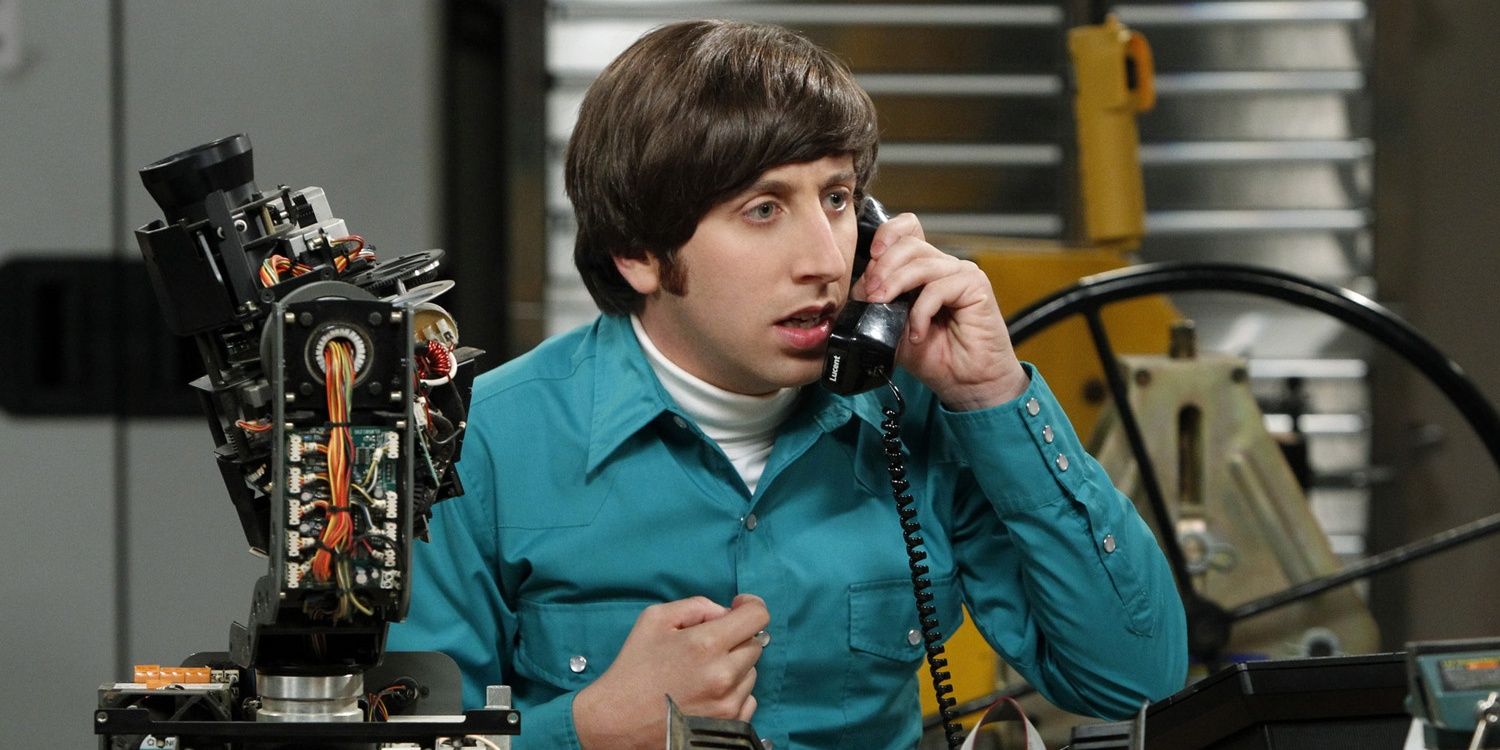The scientific accuracy of The Big Bang Theory is part of the reason why the sitcom became so influential in modern-day pop culture. It’s because the series was so precise with its factoids that makes it so surprising that the writers didn’t think fans would question Howard Wolowitz’s (Simon Helberg) ability to travel to space due to his many health issues.
Howard had one of the most impressive arcs throughout TBBT. He saw personal growth in many areas of his life, while others stayed stagnant. A huge accomplishment for him was when he was asked to join a space mission — a lifelong dream of Howard’s. The problem is that Howard had a health issue that, in reality, would have made him an undesirable candidate for a space mission.
Howard’s Health Condition Would Have Made It Impossible To Go To Space
In season 1’s “The Middle Earth Paradigm,” Howard Wolowitz shared that he had a transient idiopathic arrhythmia. He jokingly asked a woman dressed as a nurse if she wanted to hear his heart skip a beat, before saying, “No, really, I have transient idiopathic arrhythmia.” Four seasons later, in “The Good Guy Fluctuation,” his condition is mentioned again.
The medical condition causes an irregular heartbeat thanks to the heart’s electrical system. The disorder isn’t always present but comes and goes, depending on various factors. Even though episodes are short and only happen for a matter of seconds, they can be jarring enough to keep someone from a serious space mission.
According to the NASA website, current and future astronauts must not have underlying heart disease or cardiac function issues during NASA’s extensive health exams. The Big Bang Theory viewers saw Howard at NASA’s training facility, where he passed his physical tests to go to space, but that’s where the writers messed up. Howard was never healthy enough to fly.
It’s presumed someone with idiopathic arrhythmia wouldn’t do well in an atmosphere where a rocket is leaving the Earth’s gravity. In addition to his condition, Howard was always very open about his family’s many health complications, with heart disease being genetic.
Knowing that NASA recruits astronauts who have a clean bill of health, Howard would never have been asked to be a part of the mission. Howard’s brilliant engineering background would have landed him in the control room on Earth, but not in orbit.
On top of having an idiopathic arrhythmia and the genetic risk of developing heart disease, Howard also had a life-threatening allergy to nuts, a high percentage of body fat, and an on-and-off battle with depression. As such, his background at the Massachusetts Institute of Technology (MIT) and Caltech would make Howard a fine employee at NASA’s headquarters, but not in space.
Howard’s Space Plothole Wasn’t The Only Scientific Mishap The Show Had
Because of the scientific nature of The Big Bang Theory, the sitcom had a physics professor from the University of Los Angeles (UCLA), David Saltzberg, as a consultant to oversee their scripts to make sure they were accurate. He was even in charge of humorous jokes that had scientific undertones.
While Saltzberg nailed the role, Howard Wolowitz’s trip to outer space wasn’t the only inaccurate aspect of The Big Bang Theory.
In the final seasons of The Big Bang Theory, Sheldon and Amy Farrah Fowler (Mayim Bialik) created a theory for super Asymmetry that ]won them the Nobel Prize. Brilliant minds on the internet confirmed that while the theory is plausible, the timing of the theory is not, and that Sheldon’s concept, as it is, wouldn’t have won the Nobel Prize.
Another instance is in season 3’s “The Vengeance Formulation,” when Barry Kripke filled a room with helium so that Sheldon’s voice would lift as he spoke on the phone. The scene was a humorous one, but that’s not technically possible, as the concentration between gas and air could have been a dangerous one for Sheldon.
Small inaccuracies didn’t break the sitcom, however, as it went down as the longest-running multi-camera sitcom in history. The Big Bang Theory also inspired viewers to get involved in STEM, so, clearly, the inconsistencies with Howard’s health and other details didn’t prevent the spirit of the show from rubbing off on those who watched.



